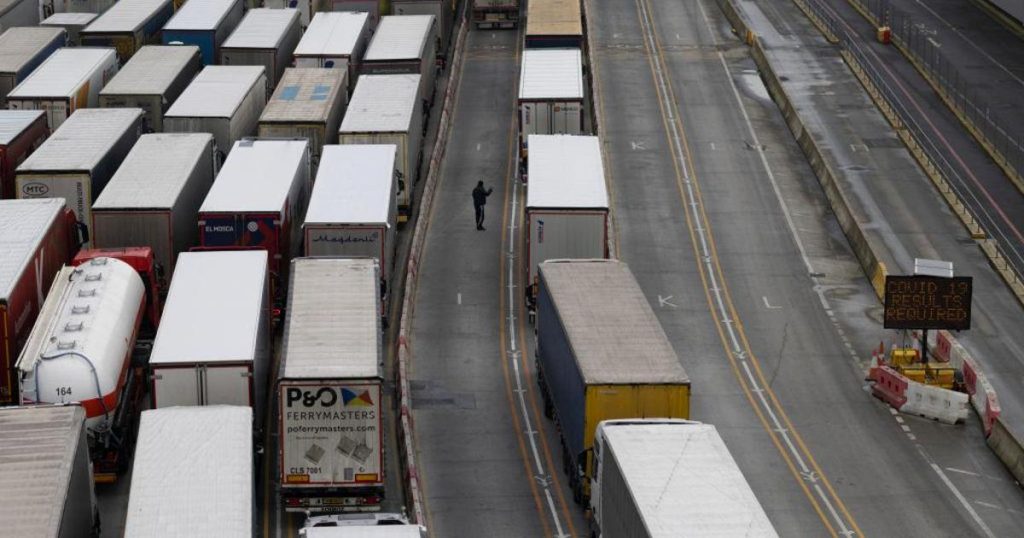The European Union has given final approval to stricter CO2 emissions standards for new heavy vehicles. During the Education Council meeting, the 27 ministers approved the political agreement reached in January with the European Parliament. Italy, Poland, and Slovakia voted against the agreement, while the Czech Republic abstained. The new regulation sets targets for a 45% reduction in emissions by 2030, 65% by 2035, and 90% by 2040, in addition to the existing 15% target by 2025. These targets will apply to trucks over 7.5 tonnes and private buses. City buses will see a 90% reduction in emissions by 2030, reaching zero emissions by 2035. An interim evaluation of these targets will be conducted by the EU in 2027. A new consideration was added to the agreement, at Germany’s request, requiring the European Commission to assess the possibility of introducing a methodology for registering heavy commercial vehicles that run solely on CO2-neutral fuels within one year of the regulation coming into effect.
The approval of stricter CO2 emission standards for new heavy vehicles in the EU comes after a political agreement was reached with the European Parliament in January. The targets set in the new regulation include a 45% reduction in emissions by 2030, 65% by 2035, and 90% by 2040, as well as a 15% reduction by 2025 that is already in place. These targets will apply to trucks over 7.5 tonnes and private buses. City buses will see a 90% reduction in emissions by 2030, reaching zero emissions by 2035. An interim evaluation of these targets will be conducted by the EU in 2027. Germany requested the addition of a consideration requiring the European Commission to assess the possibility of introducing a methodology for registering heavy commercial vehicles that run solely on CO2-neutral fuels within one year of the regulation coming into effect.
Italy, Poland, and Slovakia voted against the stricter CO2 emission standards for new heavy vehicles in the EU during the Education Council meeting, while the Czech Republic abstained. The targets set in the new regulation aim for a 45% reduction in emissions by 2030, 65% by 2035, and 90% by 2040, in addition to the existing 15% target by 2025. Trucks over 7.5 tonnes and private buses will be subject to these targets. City buses will see a 90% reduction in emissions by 2030, reaching zero emissions by 2035. An interim evaluation of these targets will be conducted by the EU in 2027. A new consideration, requested by Germany, has been added to the agreement to require the European Commission to assess the possibility of introducing a methodology for registering heavy commercial vehicles that run solely on CO2-neutral fuels within one year of the regulation coming into effect.
The European Union’s approval of stricter CO2 emission standards for new heavy vehicles comes after a political agreement was reached with the European Parliament in January. The new regulation sets targets for a 45% reduction in emissions by 2030, 65% by 2035, and 90% by 2040, in addition to the existing 15% target by 2025. These targets will apply to trucks over 7.5 tonnes and private buses. City buses will see a 90% reduction in emissions by 2030, reaching zero emissions by 2035. An interim evaluation of these targets will be conducted by the EU in 2027. At Germany’s request, a new consideration was added to the agreement requiring the European Commission to assess the possibility of introducing a methodology for registering heavy commercial vehicles that run solely on CO2-neutral fuels within one year of the regulation coming into effect. Italy, Poland, and Slovakia voted against the agreement at the Education Council meeting, while the Czech Republic abstained.
The approval of stricter CO2 emission standards for new heavy vehicles in the EU marks a significant step towards reducing carbon emissions in the transportation sector. The targets set in the new regulation aim for a 45% reduction in emissions by 2030, 65% by 2035, and 90% by 2040, in addition to the existing 15% target by 2025. Trucks over 7.5 tonnes and private buses will be required to meet these targets. City buses will see a 90% reduction in emissions by 2030, reaching zero emissions by 2035. The EU will conduct an interim evaluation of these targets in 2027 to assess progress. Following a request from Germany, a new consideration has been added to the agreement, obliging the European Commission to explore the possibility of introducing a methodology for registering heavy commercial vehicles that operate solely on CO2-neutral fuels within one year of the regulation taking effect. Italy, Poland, and Slovakia opposed the agreement during the Education Council meeting, while the Czech Republic abstained.


